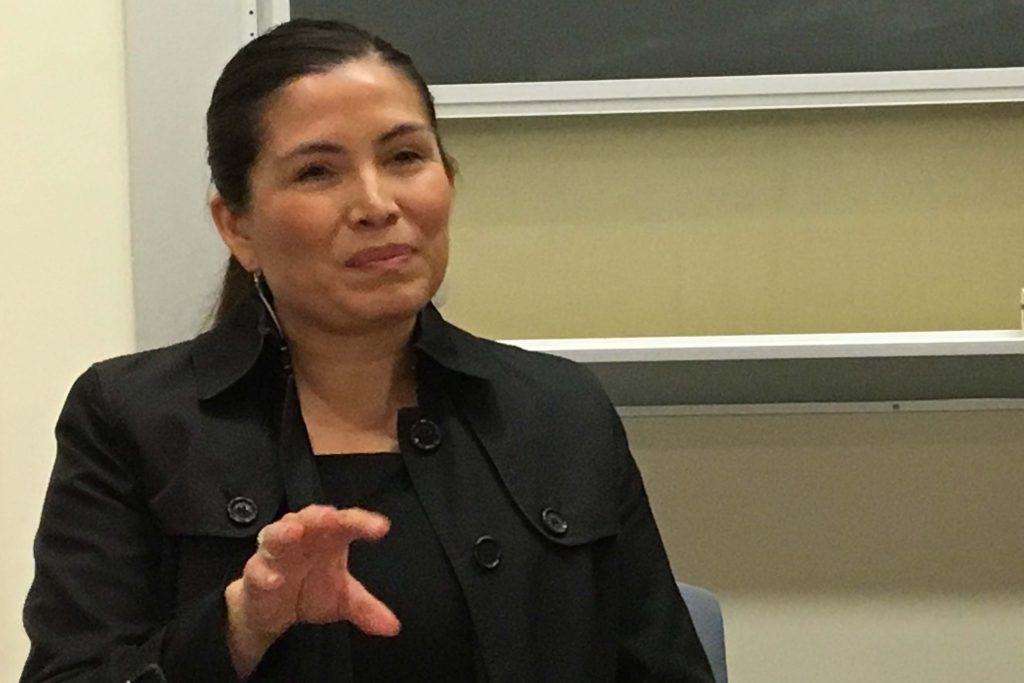Ethel Branch, the eleventh attorney general of the Navajo Nation, visited Boston College Law School on April 10 to discuss the current state of the Navajo justice system—which she says doesn’t get the respect it deserves—and to express hopes for the future of all Indian country.
The Harvard Law School graduate emphasized the ongoing importance of promoting the tribal sovereignty of the Navajo Nation. The Navajo people receive funding from the federal government but the Navajo Nation maintains full governmental authority while acknowledging the United States as a military ally, Branch explained.
Unfortunately, Navajo courts do not always receive the appropriate level of respect or deference from other courts throughout the country, she said. Many jurisdictions question the ability of the Indian government to govern justly or for Indian courts to appropriately handle non-Indian matters in the Indian court system.
Branch said this antiquated view is deeply damaging to the role of the Navajo Nation in the national legal community. While the Navajo Nation preserves traditional alternative forms of justice, Branch asserted that these practices should not elicit distrust from non-Indian courts.
In particular, the Navajo Nation uses a peacemaking program for the purpose of fair sentencing practices. This optional system allows for parties to meet with a peacemaker in a dispute resolution setting outside of court. The peacemaker moves for the parties to come to a sentencing agreement that is agreeable to both.
Although Branch made clear that there continues to be room for improvement in the national opinion of the Navajo justice system, she is hopeful for the future.
High profile cases, including the Navajo Nation’s action against Urban Outfitter’s use of Navajo branding, have started a national conversation about tribal legal issues, she said.
She also believes that the appointment of Supreme Court Justice Neil Gorsuch can help to serve tribal interests. He has an understanding of the Indian legal relationship, unlike the country’s fourth chief justice, John Marshall, whose positions concerning tribal sovereignty remain controversial. “He didn’t know what a tribe was,” she said.
BC Law’s resident expert on land use and tribal law, Professor Jonathan Witten, moderated.
The Attorney General’s visit was hosted by the Native American Law Student Association. BC Law’s relationship with the Navajo Nation, by far the largest tribal government in the US, is unique. Students’ participation in the Navajo Spring Break trip has been a successful public service initiative over the past many years, unequalled by any other law school community.
______________________________


